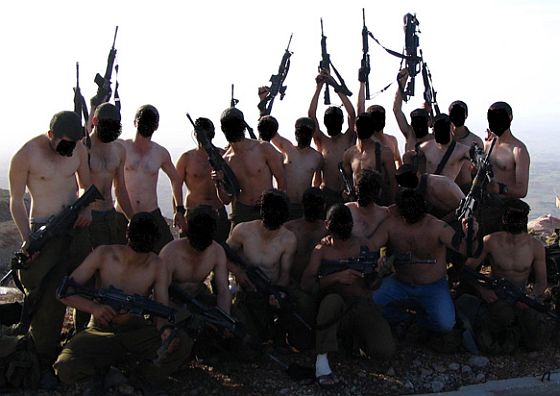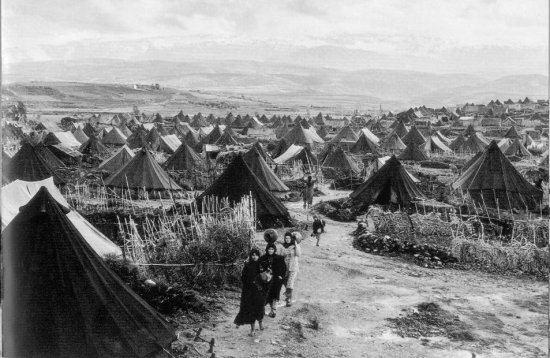The New York Times has a “public editor” — currently Arthur S. Brisbane — who is described as “the readers’ representative.” His job is to respond to complaints and comments from the public and to monitor the paper’s journalistic practices.
Readers’ representative? Is he selected by the paper’s readers? No. Is he employed by the paper? Yes. So, let’s be clear then: the public editor represents the newspaper — not its readers.
The existence of a public editor is an exercise in self-policing and like most other forms of self-policing, the function of the public editor is to create the appearance of institutional integrity in order to improve the newspaper’s image. In other words, the public editor is regarded as having commercial value as a component in the New York Times’ brand management.
Having said that, I have no doubt Brisbane is a decent guy but he’s as tough as the newspaper wants him to be — which isn’t much.
Of his predecessor, Byron Calame, Jack Shafer at Slate once wrote:
Calame possesses a mandate that would allow him to boil the journalistic ocean if he so desired, but he usually elects to merely warm a teapot for his readers and pour out thimblefuls of weak chamomile.
If the executives at the New York Times actually wanted a public editor intent on boiling the journalistic ocean, they wouldn’t appoint characters like Calame and Brisbane.
Which brings us to today’s column in which Jerusalem bureau chief, Ethan Bronner, gets a slap on the wrists for his own conflicts of interest. Bronner comes out badly not because he gets rough treatment from Brisbane but because he’s a serial offender who’s working on borrowed time.
What both Brisbane and Bronner supposedly don’t understand is that there is no real difference between an “actual” conflict of interest and the appearance of a conflict of interest — conflicts of interest are by their very nature all about appearance.
Here’s the column:
CONFLICT of interest, or the appearance of it, is poisonous in journalism. This is particularly so when it relates to reporting on Israel and the Palestinians, a subject that draws a steady stream of skepticism about New York Times coverage from readers and partisans on all sides.
So it is troubling that, just before the Palestinians brought their case for statehood to the United Nations last week, an American writing for The Columbia Journalism Review accused The Times’s Jerusalem bureau chief of appearing to give favorable treatment to his speaking agent’s other clients.
The article by Max Blumenthal on Sept. 14 set off a chain of follow-up pieces by others and by Mr. Blumenthal himself, hammering away at the allegation that Ethan Bronner, the Times bureau chief, was compromised by his relationship with a public relations firm that arranged paid speaking engagements for him.
A close examination of the facts leads me to conclude that the case for an actual conflict of interest is slender. But the appearance of a conflict clearly exists, and that is a problem in and of itself. The Times’s “Ethical Journalism” (PDF) guidelines state that staff members “may not accept anything that could be construed as a payment for favorable coverage or as an inducement to alter or forgo unfavorable coverage.”
Mr. Bronner has now severed his ties to the public relations firm. “In my view, it is all about appearances,” he told me. “I am not denying they matter. There is nothing of an actual conflict.”
The matter revolves around Mr. Bronner’s engagement, beginning in 2009, with Lone Star Communications, a firm operated by Charley Levine, a prominent public relations executive in Israel. Mr. Levine added a speakers bureau to his firm that year, and Mr. Bronner signed on to be represented by him.
The core of Mr. Blumenthal’s critique was that Mr. Levine is a figure of the Israeli right, who counsels prominent Zionists and serves as a reservist in the Israeli Defense Forces Spokesperson’s Unit. Mr. Blumenthal, a writing fellow at the Nation Institute, said it was improper of Mr. Bronner to have a business relationship with Mr. Levine while covering stories that Lone Star promoted.
In The Columbia Journalism Review article, Mr. Blumenthal never explicitly accused Mr. Bronner of providing favorable coverage as a quid pro quo for receiving speaking engagements from Mr. Levine’s firm. He objected that Mr. Bronner “takes paid speaking engagements from a firm that also pitches him stories.” Elsewhere in the article, he wrote: “On the one hand, it might be hard to cover Israel without stumbling across Lone Star’s many clients. On the other, however, that might be a good reason not to have a business relationship with the firm.”
In an interview, Mr. Blumenthal said, “It is a question of appearances and his ability to be taken seriously because he says he is an objective reporter.”
Mr. Blumenthal’s article enumerated six cases in which Mr. Bronner had written about, or at least mentioned, Lone Star clients. Mr. Bronner walked me through those cases. Of the six, he said, only one involved an instance in which he had received a pitch from Lone Star and, on that basis, decided to write about it. The article concerned the Jewish National Fund and was about a fortified play area for children in the Israeli border town of Sderot.
In the rest of the cases except one, he said, he did not receive a pitch from Lone Star and was unaware that the story involved a Lone Star client. The exception involved Danny Danon, a conservative member of the Israeli Parliament. Mr. Bronner said he has covered Mr. Danon but the coverage decisions were influenced not by Lone Star but by the prominence of Mr. Danon, who is deputy speaker of Parliament and chairman of World Likud.
The Blumenthal piece creates the implication of a corrupt arrangement. In my view, the arrangement was ill-advised and created an appearance that could be construed by some as corrupt, but was not in actuality.
I consulted two journalism ethics experts on this, who reached the same conclusion. Stephen Ward, who heads the Center for Journalism Ethics at the University of Wisconsin, said: “Has there been an actual conflict of interest? I don’t find it in this case. What about the perception of a conflict? That is where I think some might see the relationship between him and the public relations firm and have some reason to doubt.”
Ed Wasserman, Knight professor of journalism ethics at Washington and Lee University, said Mr. Bronner’s decision to sever ties to Lone Star was the “appropriate” action.
For his part, Mr. Bronner is kicking himself over the episode. “I allowed myself to be in a situation where someone could come after me this way,” he said. “I feel pretty bad about it.”
He said Lone Star had booked only a half dozen speeches for him, out of 75 that he had given since he became bureau chief three and a half years ago. He speaks only to nonprofit organizations and, in Israel, typically receives fees of less than a thousand dollars, he added.
He did not tell his editors about his relationship with Lone Star, he told me, because he did not think joining a speakers bureau had to be disclosed. Indeed, the ethics guidelines do not specifically require it. But the guidelines do require Times staff members to provide an accounting to editors if they earn more than $5,000 of speaking fees in a year. Mr. Bronner acknowledged he was “delinquent” in failing to do this, saying he believed he was obligated to account only for any single speech for which he was paid more than $5,000, another requirement of the policy.
(Mr. Bronner faced criticism previously when his son joined the Israeli military, prompting The Times’s public editor then, Clark Hoyt, to recommend that Mr. Bronner be reassigned because of the appearance of a conflict. Bill Keller, the executive editor at the time, supported Mr. Bronner, and he remained in his post. Mr. Bronner’s son has since completed his service and returned to the United States.)
Mr. Bronner was pointed in arguing that the attack by Mr. Blumenthal, who writes critically of Israel’s dealings with the Palestinians, was ideologically motivated and designed to discredit Mr. Bronner.
Mr. Blumenthal’s piece may well have been influenced by an animus toward Mr. Bronner’s reportage for The Times. But the fact remains that the Lone Star engagement created a problem and stands as a reminder that The Times must be fastidiously independent, in reality and in appearance, or face attacks like this one.
Here’s the irony: if the New York Times was to have a public editor worthy of the name, he’d do nothing to insinuate that criticism of the kind delivered by Max Blumenthal was in some way unfair, but on contrary acknowledge the fact that the most rigorous criticism of the paper’s practice of journalism is most often going to come from those who take the deepest interest in the issues — not those who practice the mealy-mouthed art of balanced impartiality.


